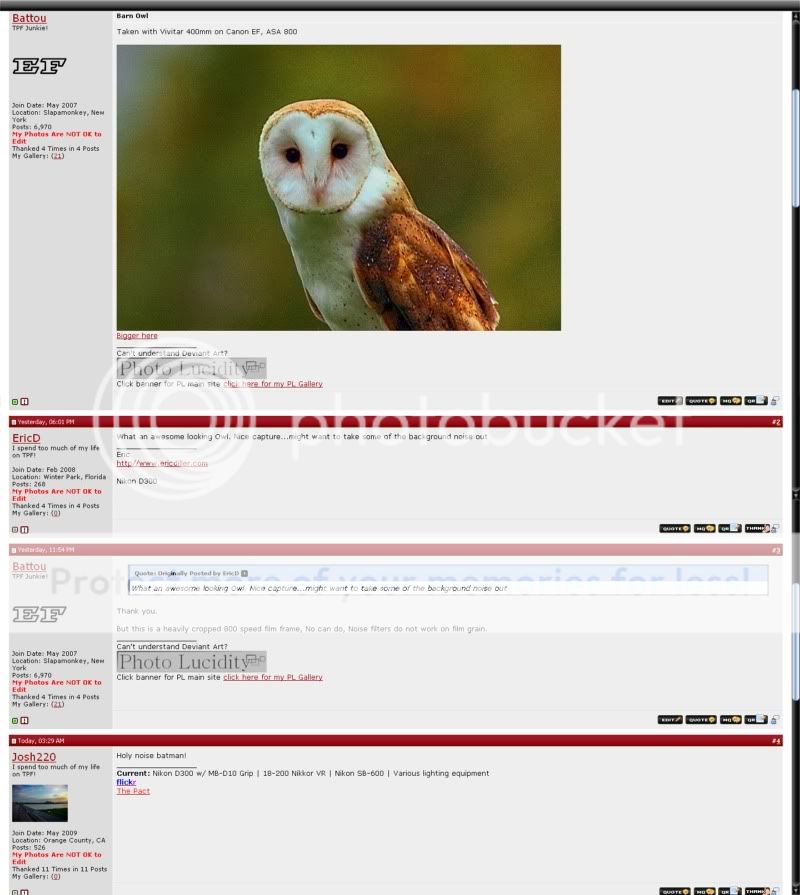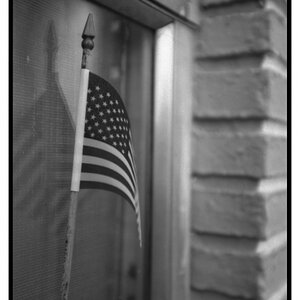Battou
TPF junkie!
- Joined
- May 10, 2007
- Messages
- 8,047
- Reaction score
- 66
- Location
- Slapamonkey, New York
- Website
- www.photo-lucidity.com
- Can others edit my Photos
- Photos NOT OK to edit
Read Before Posting
Or Should I say Grain VS Noise.
I don't know why I bother posting photos any more, it seems to me the people around here are more interested in silky smooth plastic immitation look to imagery than the image it self, and this has been an ongoing thing. I shoot 35mm film and I am seriously sick of people bitching about "Noise", it ain't noise, it's film grain. Yes, I am well aware that slower speed film has less noticable grain and there are ways to reduce the apperance of grain in higher speed films, but this is not the problem here. It's almost as if the current generation of photographers on TPF is absolutely clueless that there difference between digital Noise and Film grain.
Seriously kids, just because it's displayed on the computer does not mean it's digital photography.
The same Photo posted on three different sites, of the six comments it has recieved in it's first twenty four hours online across those three sites the two here on TPF had to chip in some crap about noise.



Now,
What the hell is wrong with this picture? No, I do not mean the photograph, I mean the commenting patern.
With TPF seeming to get a lot of beginners and first timers, What does it say about modern photography education?
Or Should I say Grain VS Noise.
I don't know why I bother posting photos any more, it seems to me the people around here are more interested in silky smooth plastic immitation look to imagery than the image it self, and this has been an ongoing thing. I shoot 35mm film and I am seriously sick of people bitching about "Noise", it ain't noise, it's film grain. Yes, I am well aware that slower speed film has less noticable grain and there are ways to reduce the apperance of grain in higher speed films, but this is not the problem here. It's almost as if the current generation of photographers on TPF is absolutely clueless that there difference between digital Noise and Film grain.
Seriously kids, just because it's displayed on the computer does not mean it's digital photography.
The same Photo posted on three different sites, of the six comments it has recieved in it's first twenty four hours online across those three sites the two here on TPF had to chip in some crap about noise.



Now,
What the hell is wrong with this picture? No, I do not mean the photograph, I mean the commenting patern.
With TPF seeming to get a lot of beginners and first timers, What does it say about modern photography education?










![[No title]](/data/xfmg/thumbnail/37/37604-7ad625e983f92f880eb65a264eeef5e4.jpg?1619738148)

![[No title]](/data/xfmg/thumbnail/37/37603-739c5d9b541a083a12f2f30e45ca2b7b.jpg?1619738147)